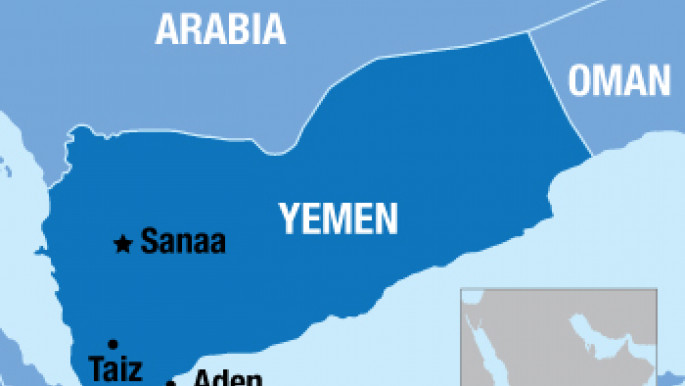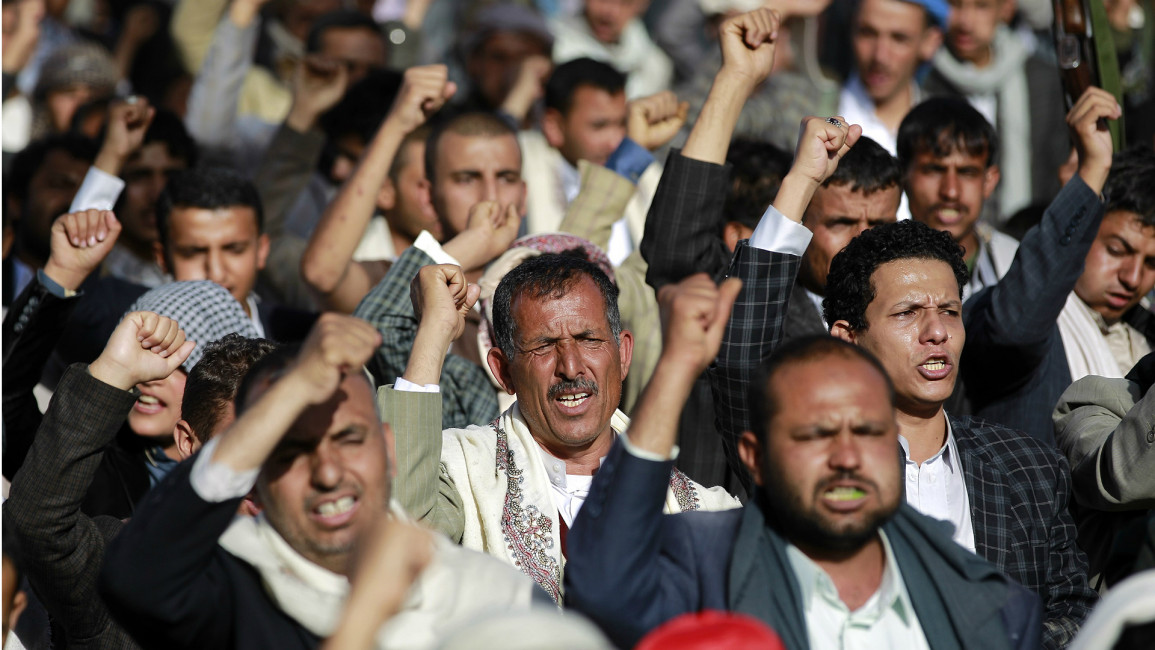Yemen rebel-allied party says ready for UN-brokered peace
Ousted Yemeni president Ali Abdullah Saleh's party, allied with the Houthi rebels, announced Wednesday it has accepted a UN plan to end the country's seven-month-old conflict.
The announcement on the General People's Congress party website, almotamar.net, comes as UN envoy Ismail Ould Cheikh Ahmed holds secret talks with GPC and Houthi representatives in neutral Oman.
 |
|
The party's secretary general, Aref Zouka, has sent a letter to UN chief Ban Ki-moon stating the GPC is "committed to implementing the seven points set in coordination with the UN envoy" to end the conflict, it said.
Under the plan, the GPC would accept UN Security Council Resolution 2216 under an "implementation mechanism that would be agreed on by all parties" in Yemen, the party said.
Resolution 2216 calls for the withdrawal of rebel forces from territories they have captured and for them to lay down their arms.
Houthis, backed by Iran, overran the capital Sanaa unopposed in September 2014 and went on to battle for control of several regions, aided by renegade troops loyal to Saleh.
In July, loyalist forces backed by a Saudi-led Arab coalition evicted the rebels from five southern provinces, and they have since set their sights on Sanaa.
Zouka called in his letter for "ending the war and urged all parties to start negotiations to set in place an implementation mechanism for Resolution 2216 that would organise withdrawal from cities and disarmament of all parties."
This must take place under UN supervision to prepare for a relaunch of the political process.
It could not immediately be confirmed from the Houthis if they had also agreed to the UN plan.
A first attempt to hold peace talks in Geneva in June between the pro-government forces and Houthi rebels collapsed without the warring parties even sitting down in the same room.
Last month, President Abedrabbo Mansour Hadi's government backed away from UN-sponsored talks that were to be held in Oman, insisting the rebels first withdraw from territory they have seized.
Oman is the only member of the Gulf Cooperation Council, led by Riyadh, not taking part in the Saudi-led coalition's air war launched in March against the rebels, and Muscat also has good ties with Tehran.
Hadi's internationally-recognised government has insisted on the unconditional implementation of Resolution 2216.
The GPC said the resolution's implementation must be accompanied by a halt to military operations and lifting of the blockade imposed by the coalition on Yemen.
Suspension of arms
The announcement comes following a report by human rights group, Amnesty International, who called for a "suspension" in transfers of certain arms to members of the Saudi-led coalition battling the Houthis.
The London-based human rights watchdog urged holding an "independent, effective investigation of violations" by the coalition.
The report, titled 'Bombs fall from the sky day and night: Civilians under fire in northern Yemen' focuses on the plight of civilians in Houthi strongholds.
It "examines 13 deadly airstrikes by the coalition in Saada... which killed some 100 civilians, including 59 children, said Amnesty of the report, which also documents the use of "internationally banned cluster bombs".
The UN says the Yemeni conflict has killed about 5,000 people and wounded 25,000, among them many civilians.
"The USA and other states exporting weapons to any of the parties to the Yemen conflict have a responsibility to ensure that the arms transfers they authorise are not facilitating serious violations of international humanitarian law," said Amnesty.
It said that transfers of arms and munitions used by members of the coalition to "commit violations of international humanitarian law, including war crimes in Yemen" must be suspended.
Amnesty specified "bombs from the MK (MARK) 80 series and other general purpose bombs, fighter jets, combat helicopters and their associated parts and components."
Rights groups have repeatedly accused the coalition of causing civilian casualties during their bombing campaign.
Amnesty's latest report "uncovers yet more evidence of unlawful airstrikes carried out by the coalition, some of which amount to war crimes," said Donatella Rovera, who headed the group's fact-finding mission to Yemen.
"It demonstrates in harrowing detail how crucial it is to stop arms being used to commit serious violations of this kind," she said.



